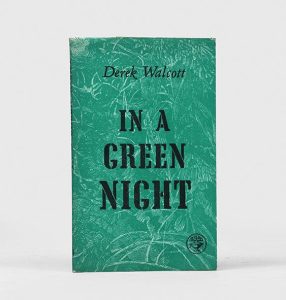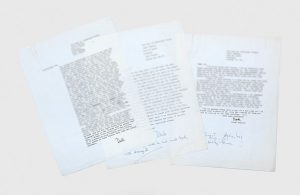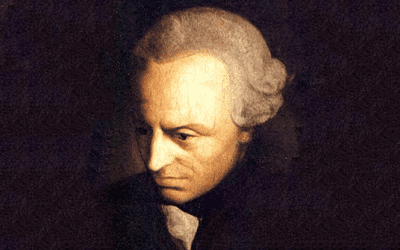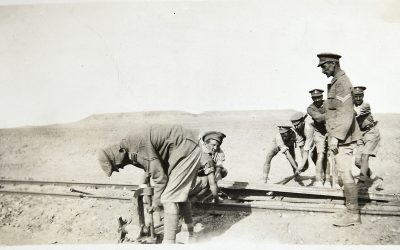One of the satisfactions of putting together a catalogue is the opportunity to tell a story – arranging books and paper, these chance scatterings of time, into a narrative that captures some of the passion, struggle, or triumph in the lives of their authors or readers. This Poetry catalogue is no exception.
Derek Walcott
One of the poetic careers I’ve always been moved and impressed by is that of Derek Walcott. Walcott was born in 1930 in the Caribbean on the island of St Lucia, the son of a civil servant who loved to paint, and a teacher at the local Methodist school who cherished poetry. From this relatively humble, though evidently nurtured, beginning, he would become one of the world’s most respected poets, and with the publication of Omeros in 1990, a bold transposition of Homer’s Odyssey to a Caribbean idiom, he would go on to be awarded the Nobel Prize, becoming the first Caribbean Nobel laureate.
In a Green Night
Walcott’s first big break came in 1962 when Tom Maschler of Jonathan Cape (who incidentally had a knack for bringing in talented voices from outside the British literary world, several of whom would go on to be Nobel Laurates, including Pablo Neruda and Gabriel García Márquez) published his poetry collection In a Green Night. In the catalogue we have a scarce proof copy of this collection, which stands as the middle point in the story being told.
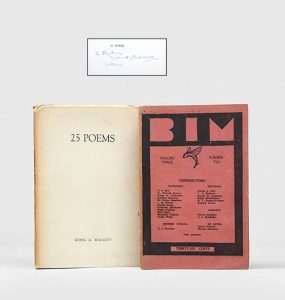
25 Poems
Finding anything from Walcott before this date is hard, though the precocious young poet had in fact published many poetry collections and plays throughout his late-teens and twenties. These were all printed locally on various islands of the Caribbean: Trinidad, Barbardos, and Jamaica, usually in very small numbers, and often self-funded, with his devoted mother reportedly working two jobs to help raise money for the printing of her son’s poems. Consequently, surviving copies of these are rare, and the rarest of these is his debut collection, 25 Poems, published in 1949. The trio of Walcotts in our Poetry catalogue starts its narrative here – but it’s not just the survival of the copy that’s significant (there are only a mere handful recorded in libraries around the world), but the rare and rather moving inscription in the hand of the young poet: “To Roy Fuller, compliments of Derek Walcott, gratefully”.
Fuller and Walcott
Roy Fuller was a British writer who, like Walcott, had carried a love of poetry through an underprivileged upbringing. By the time of the book’s inscription Fuller was an established poet. He appeared on the BBC’s 1949 radio programme Caribbean Voices, and made special notice and praise of Walcott’s poetry. His praise, moreover, was analytical, respecting the poet on equal terms and without condescension. Walcott then sent this copy, “gratefully”, to this main whose praise must have felt like one of the first beckonings from literary world outside the Caribbean, setting him on the road that would lead to his Nobel laureateship.
Letters from Walcott to Giroux
The final point in our story comes with a new discovery, which I made recently while digging through a trove of material from the archive of American publisher Robert Giroux – a collection of three unpublished letters from Walcott to Giroux. Giroux had been a major figure at Harcourt, Brace, & Co., before moving in 1955 as a leading editor at FSG (Farrar, Strauss, & Giroux), where he shepherded the careers of many great American writers such as Elizabeth Bishop, Jack Keroauc, and Flannery O’Connor. Walcott was one of his poets – it was under Giroux’s wing that Walcott’s career really took off, leading eventually to the publication of Omeros and the Nobel prize that followed. The letters are written from Trinidad in the mid-60s, marking the early stages of their friendship and collaboration leading up to the publication of Another Life, and are full of evident enthusiasm and excitement.


